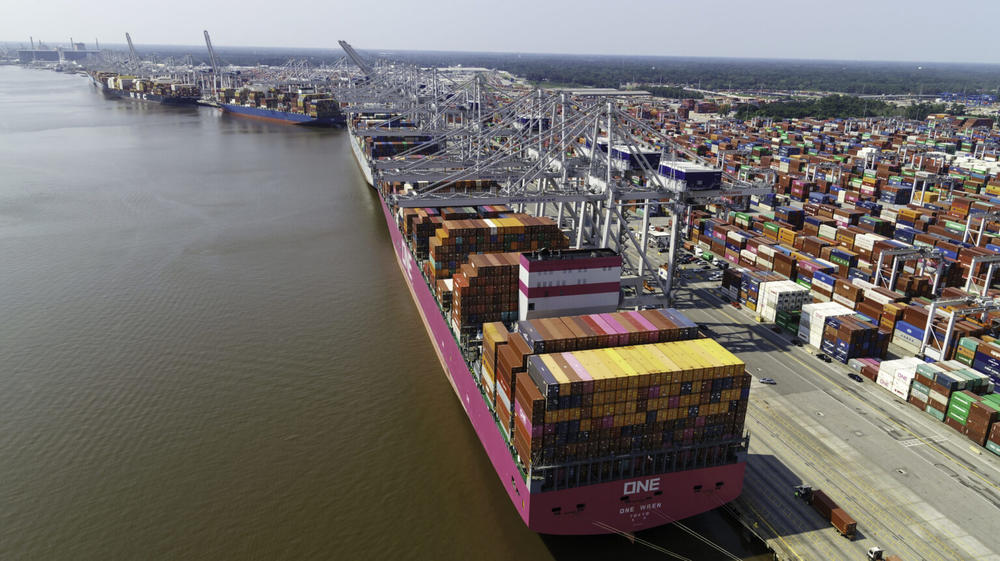
Caption
The administration expects the Port of Savannah, the nation’s third-busiest importer, to be the first to take advantage of a policy change allowing ports to redirect about $8 million in funding to immediately address supply chain challenges.
Credit: Jeremy Polston/Georgia Ports Authority

